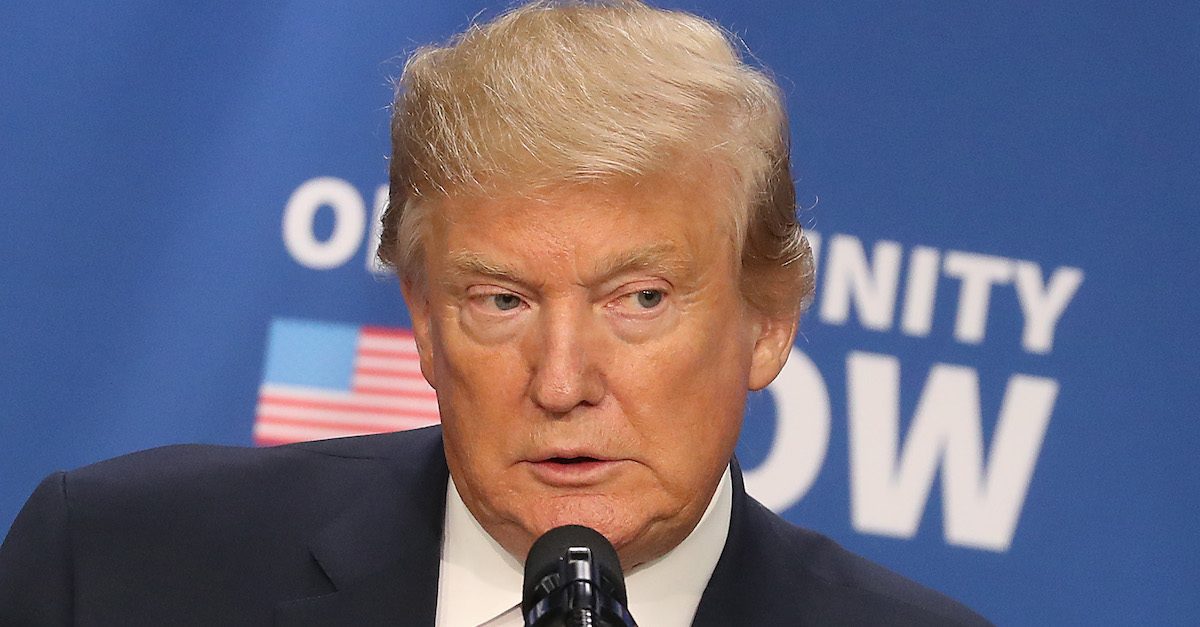
Attorneys for the Department of Justice (DOJ) on Friday submitted a motion to the United States District Court for the District of Columbia requesting that the court dismiss House Democrats’ lawsuit aimed at President Donald Trump’s tax returns.
In the motion, the attorneys claimed that House Democrats are constitutionally prohibited from “conscripting” the federal judiciary to enforce subpoenas issued for the president’s tax documents unless the Executive Branch agrees to allow the matter to be adjudicated through the court.
“[T]he Committee’s attempt to enlist the Judiciary on its side of this inter-branch dispute goes beyond well-established limits on Article III jurisdiction, presenting ‘fundamental separation of powers concerns relating to the restricted role of the Article III courts in our constitutional system of government,’” the government said.
The argument essentially posits that the Constitution’s separation of powers prevent federal courts from being used in a political dispute between two co-equal branches of government.
“There is no constitutional or statutory basis for a Committee of the House of Representatives to take on the role of enforcing its subpoenas in the Federal courts where the Executive Branch has decided not to do so,” DOJ attorneys wrote. “If Congress is dissatisfied with the Executive Branch’s response to its subpoena, its recourse is the constitutionally mandated accommodation process and legislative tools assigned by the Constitution, not the deployment of lawyers wielding the Federal Rules of Civil Procedure.”
Professor Orin Kerr, who teaches at the University of California, Berkley School of Law seemed to find the DOJ’s argument incompatible with the separation of powers doctrine.
“The Trump Administration’s view of separation of powers: The Executive Branch has all of the power, and the House is separated from it,” he tweeted in response to the motion.
Kerr’s assessment was reiterated by CNN legal analyst and former federal prosecutor Renato Mariotti, who said that, “if [the DOJ’s argument] was true, Congress could never enforce a subpoena served upon the Executive Branch.”
As Cornell Law professor Josh Chafetz pointed out, however, while the DOJ’s position may appear extreme, the same argument has been made by prior administrations, likely as a tactic to protract litigation.
“I feel like a broken record on this, but one more time: the point of these arguments isn’t to win in the end. It’s to drag court proceedings out forever. The Miers/Bolten and Holder contempt proceedings are the roadmap here,” he wrote in response to backlash against the motion.
Chafetz was joined by University of Iowa Law School professor Andy Grewal, who noted that the Justice Departments of Barack Obama and George W. Bush took the same positions against federal courts enforcing Committee subpoenas, though the district court ultimately declined to agree with either administration.
Trump Admin Motion to Dismiss by Law&Crime on Scribd
[image via Mark Wilson/Getty Images]